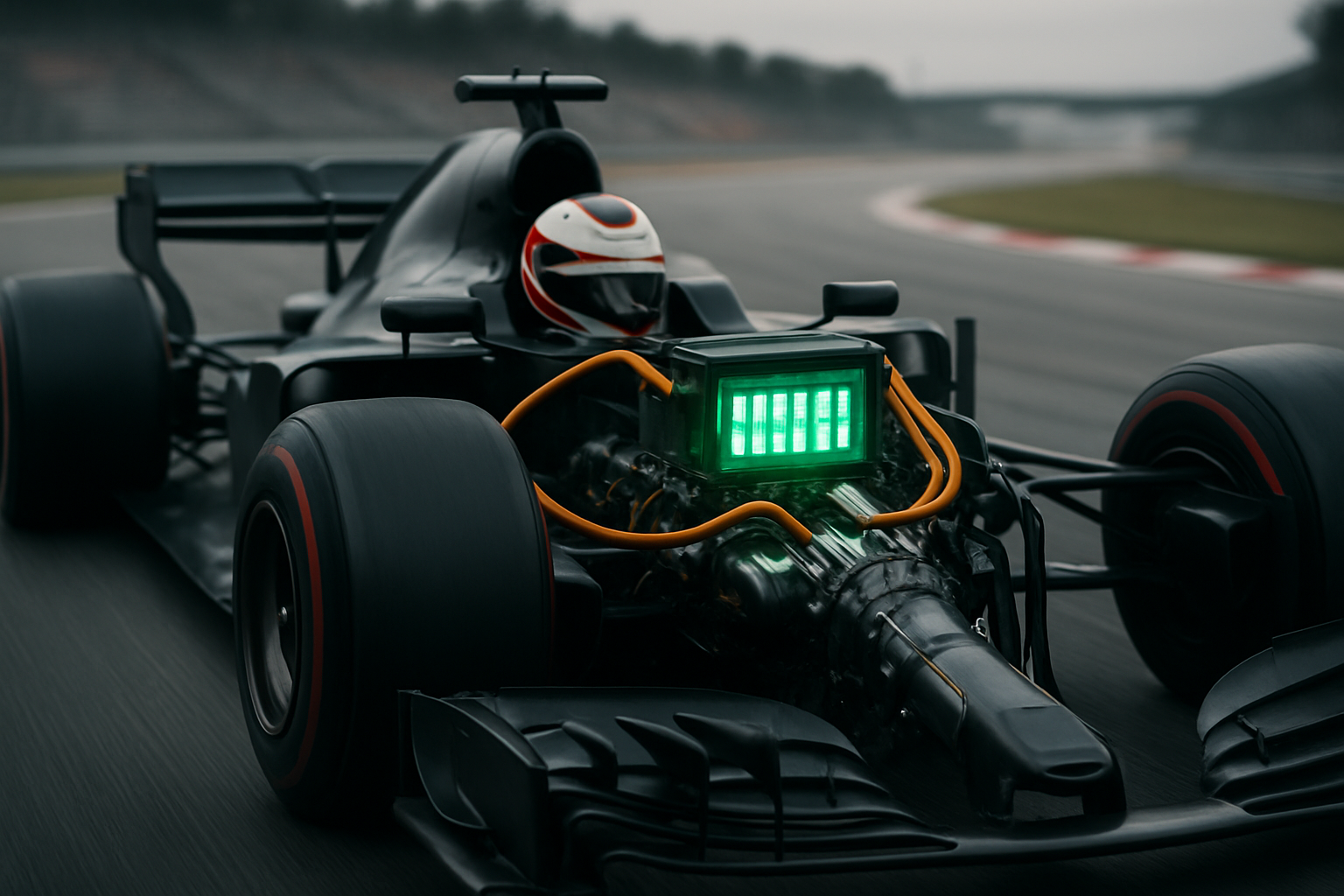Unraveling the Mysteries of Synthetic Fuels in Motorsports
The roar of engines, the smell of burning rubber, and the thrill of high-speed competition have long been the hallmarks of motorsports. But beneath the surface, a quiet revolution is brewing. Synthetic fuels are emerging as a potential game-changer in the world of racing, promising to maintain the visceral excitement of combustion engines while dramatically reducing their environmental impact. This paradigm shift is not just about maintaining the status quo; it's about reimagining the future of motorsports in a world increasingly focused on sustainability.

The Genesis of Synthetic Fuels in Racing
The concept of synthetic fuels is not entirely new to the automotive world. During World War II, fuel shortages led to the development of coal-to-liquid technologies in Germany. However, the modern resurgence of interest in synthetic fuels for motorsports stems from a very different set of circumstances. As global pressure mounts to reduce carbon emissions, racing organizations find themselves at a crossroads. The challenge lies in maintaining the essence of motorsports – raw power, speed, and mechanical ingenuity – while adapting to a world that demands sustainability.
Formula 1, often at the forefront of automotive innovation, has been exploring the potential of synthetic fuels as part of its sustainability strategy. The sport aims to be carbon neutral by 2030, and synthetic fuels could play a crucial role in achieving this goal. Other racing series, including endurance racing and rally competitions, are also investigating the potential of these fuels to reduce their carbon footprint without sacrificing performance.
The Chemistry Behind the Power
At its core, the production of synthetic fuels involves a process called the Fischer-Tropsch synthesis. This method, developed in the 1920s, converts a mixture of carbon monoxide and hydrogen (known as syngas) into liquid hydrocarbons. The modern twist on this process uses renewable energy to produce hydrogen through water electrolysis and captures CO2 from the air or industrial sources to create the necessary carbon monoxide.
The resulting fuel can be tailored to meet specific performance requirements, potentially surpassing traditional petroleum-based fuels in terms of energy density and combustion efficiency. This customization ability is particularly appealing in motorsports, where every fraction of a second counts. Engineers can fine-tune the fuel composition to maximize power output while minimizing emissions, creating a win-win situation for performance and environmental concerns.
Performance on the Track
One of the most exciting aspects of synthetic fuels in motorsports is their potential to maintain or even enhance vehicle performance. Early tests have shown promising results, with synthetic fuels delivering comparable power and acceleration to traditional high-octane racing fuels. The ability to precisely control the fuel’s composition allows for optimization of combustion characteristics, potentially leading to increased engine efficiency and power output.
Moreover, synthetic fuels can be designed to have a higher octane rating than conventional fuels, allowing for higher compression ratios and more advanced ignition timing. This could translate to increased horsepower and torque, crucial factors in competitive racing. The clean-burning nature of these fuels also means reduced engine wear and potentially longer engine life, a significant consideration in endurance racing events.
Environmental Impact and Sustainability
The environmental benefits of synthetic fuels in motorsports are twofold. Firstly, when burned, these fuels release only the CO2 that was used in their production, creating a potentially carbon-neutral cycle. Secondly, the production process itself can be powered by renewable energy sources, further reducing the overall carbon footprint of the fuel lifecycle.
This approach offers a unique solution to the emissions challenge faced by motorsports. While electric vehicles have made significant inroads in many areas of transportation, the high-performance demands and extended durations of many racing events make full electrification challenging. Synthetic fuels offer a way to maintain the traditional aspects of motorsports while aligning with global sustainability goals.
Challenges and Future Prospects
Despite their potential, synthetic fuels face several hurdles before widespread adoption in motorsports. The primary challenge is cost – currently, producing synthetic fuels is significantly more expensive than refining traditional petroleum-based fuels. However, as production scales up and technologies improve, these costs are expected to decrease.
Another consideration is the energy efficiency of the production process. While the end product may be carbon-neutral, the energy required to produce synthetic fuels is substantial. Ensuring this energy comes from renewable sources is crucial to maintaining the environmental benefits of these fuels.
Looking to the future, synthetic fuels could play a pivotal role in the evolution of motorsports. They offer a path to maintain the excitement and tradition of combustion engine racing while addressing urgent environmental concerns. As technology advances and production scales up, we may see a new era of racing that combines high-octane thrills with environmental responsibility.
The integration of synthetic fuels into motorsports represents more than just a technological advancement; it’s a reimagining of what sustainable racing can look like. As these fuels move from laboratory experiments to track-tested realities, they promise to write a new chapter in the storied history of motorsports – one where the checkered flag waves for both victory and environmental stewardship.




